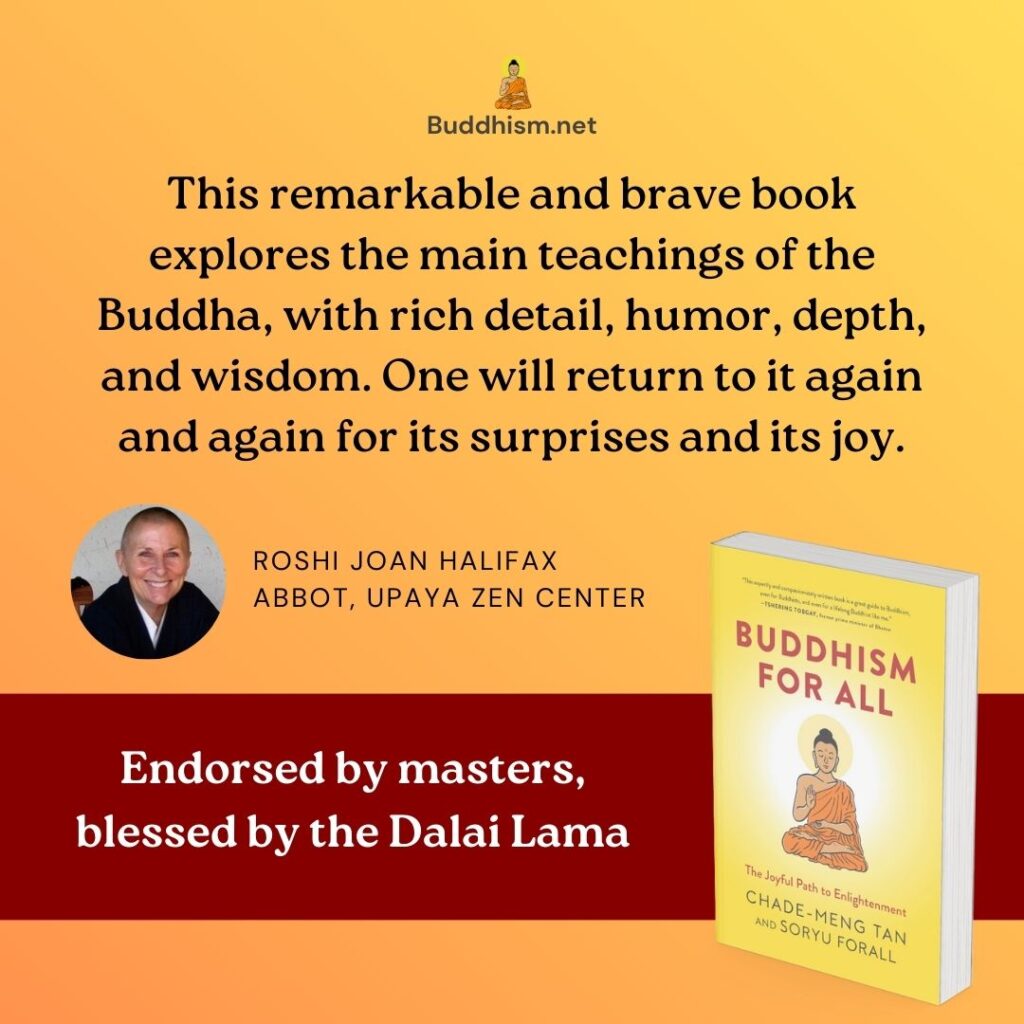
It is common among Buddhists to erroneously claim that the First Noble Truth proclaims, “Life is suffering.” That mistake is understandable, I catch myself doing it frequently too.
There are two problems with that claim. First, according to the canonical texts, the Buddha never actually said that. What he said instead was, “the five aggregates subject to grasping are suffering.“
Second, saying “life is suffering” gives the impression that life is exclusively painful, but it is not. There is indeed a lot of pleasure in life, and that can become a problem, because it blinds us to suffering and traps us in situations of inevitable future suffering.
This topic came up in a conversation between the Buddha and a man called Mahāli. Mahāli asked why “beings are defiled [with suffering]”, and the Buddha answered, “If, Mahāli, the five aggregates were exclusively suffering, beings would not become enamored with them. But because the five aggregates are pleasurable, immersed in pleasure, steeped in pleasure, beings become enamored with them. By being enamored with them, they are captivated by them, and by being captivated they are defiled.”[1]
In other words, if life were exclusively painful, beings would know to seek a solution. If life were exclusively pleasure (and never any suffering) for all of eternity, that is obviously not a problem. The problem is that suffering is mixed with enough pleasure to enamor us, causing us to be blind to the suffering, and trapping us here in situations where future suffering is inevitable. That is the problem.
In a separate discourse, Sāriputta, the Buddha’s wisest disciple, illustrated this point with a rather startling parable.[2] There was a murderer who wanted to rob from a rich man, but that rich man was protected by bodyguards. What to do? The murderer decided to become a perfect servant for the rich man. He would “rise up before him, retire after him, do whatever he wants, be agreeable in conduct and endearing in speech.” Eventually, the rich man would come to regard him as a bosom friend. Once he gained the complete trust of the rich man, he would cut him down with a knife when he found him alone, and rob him.
The entire time the murderer was the rich man’s servant, the rich man did not see the murderer as what he really was, he thought he was a bosom friend and perfect servant, because he was good in many obvious ways. In the same way, Sāriputta said, because the five aggregates give us pleasure, we become enamored and do not see the five aggregates as they really are: causes of suffering.
The solution is wisdom. With wisdom, we see the nature of suffering as it is, and then use that insight as a propellant out of suffering. The Buddha continued with his conversation with Mahāli, “But because the five aggregates bring suffering, [wise] beings experience disenchantment towards them. Experiencing disenchantment, they become liberated from lust, and through liberation from lust they are purified [from suffering]. This, Mahāli, is a cause and condition for the purification of beings.”
Activities
References
[1] Saṃyutta Nikāya 22.60.
[2] Saṃyutta Nikāya 22.85.
Featured image by Natalie Tsang.


